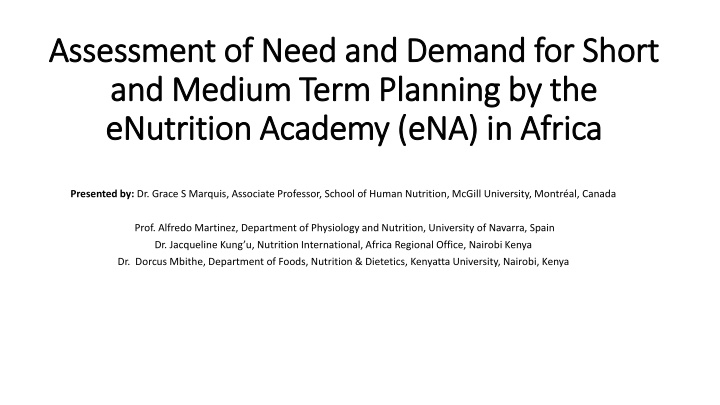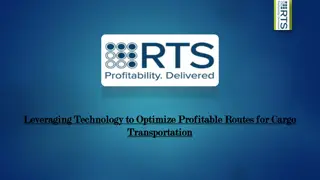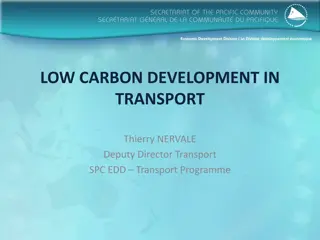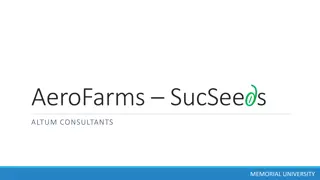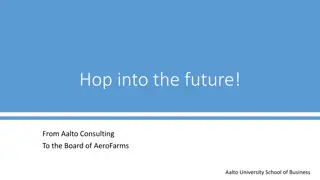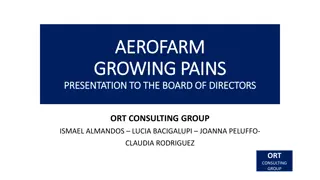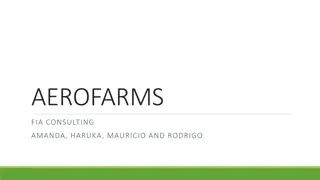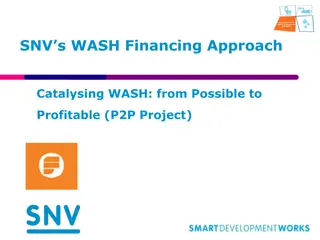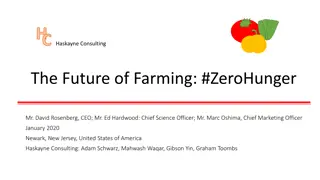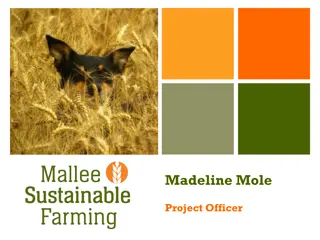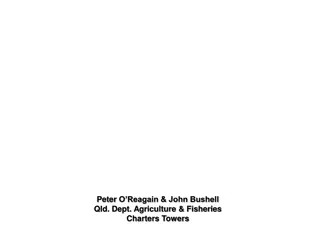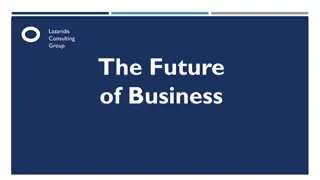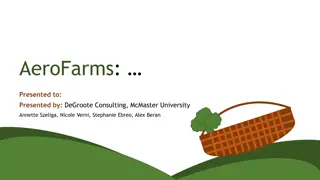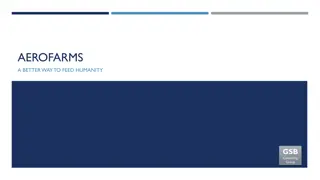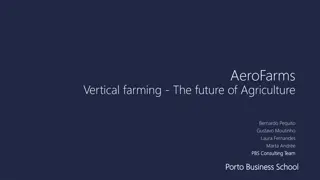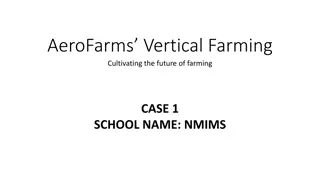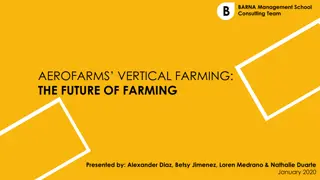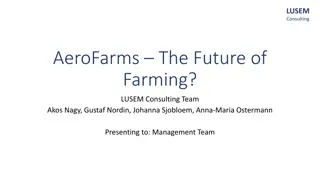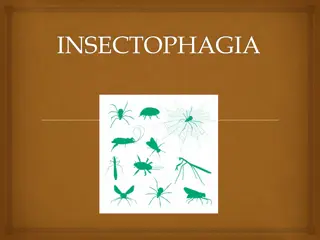AeroFarms: Profitable and Sustainable Strategies
AeroFarms faces challenges such as energy and technology limitations, funding needs, and talent shortages. The proposal suggests acquiring a competitor, diversifying products, and expanding geographically for profitability. Market forces, strengths, weaknesses, opportunities, and threats are analyzed for strategic insights.
Download Presentation

Please find below an Image/Link to download the presentation.
The content on the website is provided AS IS for your information and personal use only. It may not be sold, licensed, or shared on other websites without obtaining consent from the author.If you encounter any issues during the download, it is possible that the publisher has removed the file from their server.
You are allowed to download the files provided on this website for personal or commercial use, subject to the condition that they are used lawfully. All files are the property of their respective owners.
The content on the website is provided AS IS for your information and personal use only. It may not be sold, licensed, or shared on other websites without obtaining consent from the author.
E N D
Presentation Transcript
Assessment of Need and Demand for Short Assessment of Need and Demand for Short and Medium Term Planning by the and Medium Term Planning by the eNutrition eNutrition Academy ( Academy (eNA eNA) in Africa ) in Africa Presented by: Dr. Grace S Marquis, Associate Professor, School of Human Nutrition, McGill University, Montr al, Canada Prof. Alfredo Martinez, Department of Physiology and Nutrition, University of Navarra, Spain Dr. Jacqueline Kung u, Nutrition International, Africa Regional Office, Nairobi Kenya Dr. Dorcus Mbithe, Department of Foods, Nutrition & Dietetics, Kenyatta University, Nairobi, Kenya
Objective Objective A subcommittee of the eNutrition Academy (eNA) was formed to collect information on the topics that are most needed for courses in Africa. The objective of the subcommittee was to: 1) develop the mechanisms to assess the needs that are representative of the potential users, 2) and the means to prioritize suggested topics.
Methods Methods A) Reviews to achieve objective 1 (assessing needs) Review of information collected by trustees through scientists attending professionals meetings and informal polling Review of online E-Learning module available for undergraduates and graduates Review of a sample of online E-Learning module available for undergraduates and graduates of nutrition curriculum available in the region Review of articles discussing what a graduate nutrition program should include and priority setting
Methods Methods B) Online survey to achieve objective 2 (Prioritization) Collecting topics using an online survey on academic needs in the universities in Africa setting
Methods Methods B) Online survey Questions Q1: Have you participated in any nutrition online learning in the past? Q2: What was your overall impression of e-learning in your setting? Q3: If so, which ones? List up to 5 and as much information you are able to provide: Q4: Were you able to accomplish the objectives of the course? Q5: What were the challenges? Q6: Please add any other comments from your experiences that would help us develop useful elearning courses Q7: Considering your institution and the resources that are and are not available to you, please suggest up to 5 e-learning topics that you think are important for your to have, in your courses or interactions with nutrition students/trainees, in order of priority (1=most important) Q8: What additional benefit will these topics provide to the student/trainee? Q9: Why did you suggest these topics?
Methods Methods B) Online survey Questions Q10: Please reflect on what is needed to strengthen national capacity to undertake e-learning of nutrition courses in your setting? Q11: Type of work/institution Q12: Do you teach/supervise/train undergraduate students? Q13: Do undergraduate students in your institution have access to computers with internet? Q14: Do you teach/supervise/train graduate students? Q15: Do graduate students in your institution have access to computers with internet? Q16: Through what group did you receive this survey? Q17: If you would like to learn more about or become involved in the eNutrition Academy, please send us your contact information
Results Results - - Reviews Reviews Program planning Program implementation Multi-disciplinary approaches for nutrition Monitoring & Evaluation Gaps identified through the reviews Policy development Genetics Use of safety nets Endocrinology Need to integrate with other disciplines to adequately understand nutrition topics Analysis of dietary data
Results Results Online survey Online survey 45 Respondents from academic institutions & NGO in Africa Respondents reported e-learning courses they had covered & those they suggest that should be developed as e-learning courses.
Results Results Online survey Online survey E-learning topics covered by respondents Nutrition in Emergencies Nutrition Education Management of acute malnutrition Complementary feeding Monitoring and Evaluation Epidemiology Nutrition & Sports ENACT
Results Results Online survey Online survey The online survey topics identified ranged through the breadth of nutrition from molecular nutrition to public health nutrition. Notably, close to a quarter of the respondents reported that statistics was the priority 1 topic for them.
Results Results Online survey Online survey E-learning topics suggested by respondents Research writing Statistics Assessment of nutrition status Public health nutrition Nutrition biochemistry Basic nutrition Lactation management Malnutrition Proposal writing Scientific writing Research methods Epidemiology Nutrition education Food fortification
Results Results Online survey Online survey E-learning topics suggested by respondents Assessment of food habits Nutrition communication Nutrition physiology Social sciences in nutrition Food & nutrition security Nutrition survey design Dietary studies Food biodiversity Policies & politics in nutrition Food regulation Clinical nutrition Community nutrition Metabolomics in nutrition Social protection
Results Results Online survey Online survey E-learning topics Suggested by respondents Nutrition composition of indigenous foods Social media in nutrition education Internet & computer application in nutrition Role of food industry Dietetics Monitoring & evaluation Global nutrition Economics, health & nutrition Implementation research Leadership Nutrition policy & advocacy Program development Nutrition in emergencies Nutrition planning & policy
Conclusion Conclusion We conclude that there is a need to invest in online nutrition modules. The topics identified through various means give us a glimpse of what the potential users consider important.
